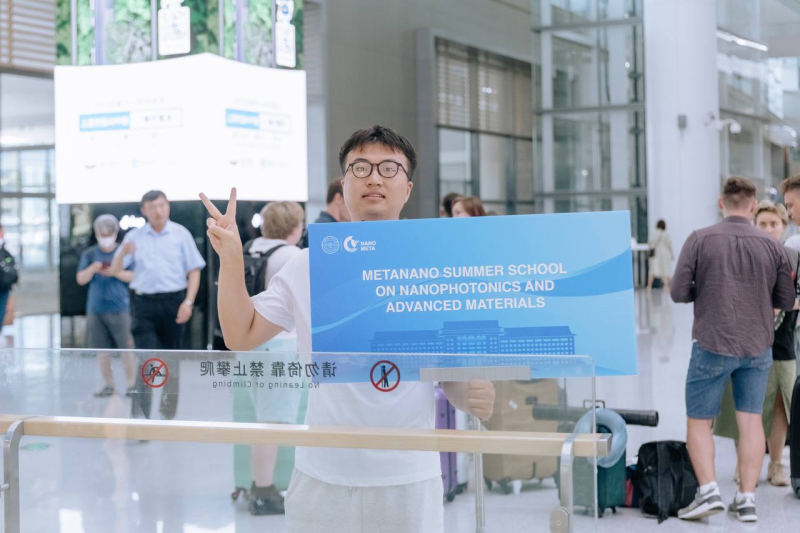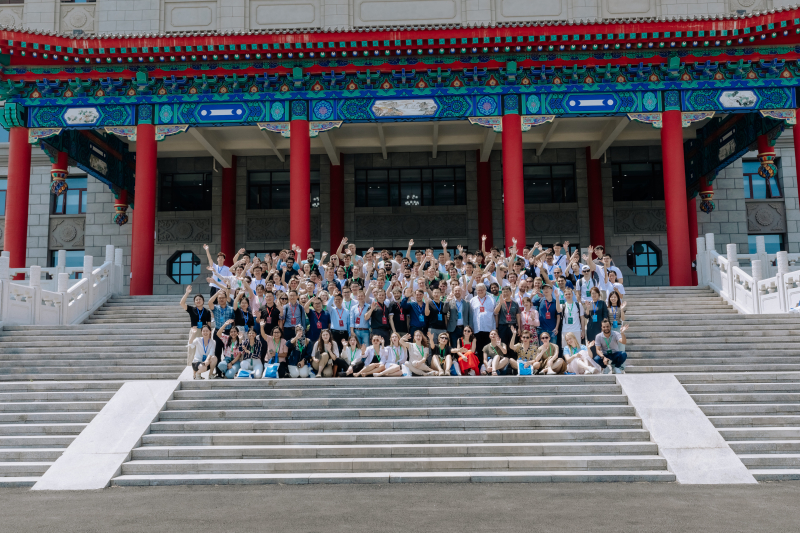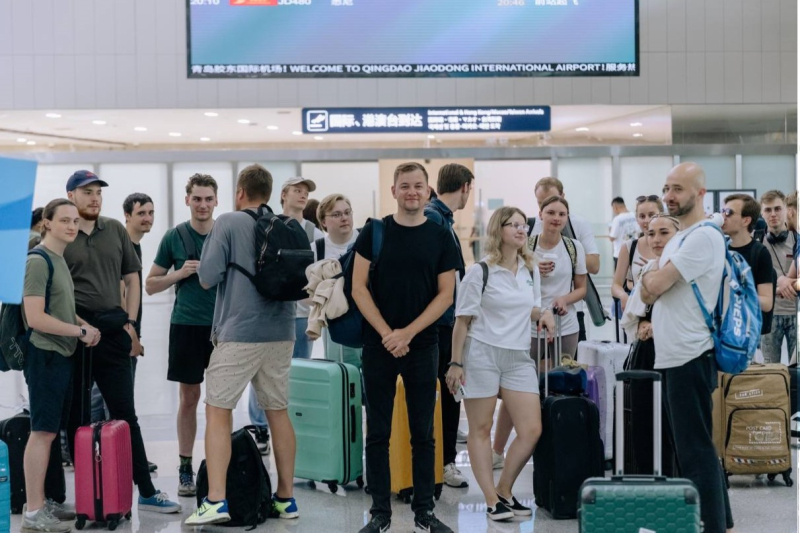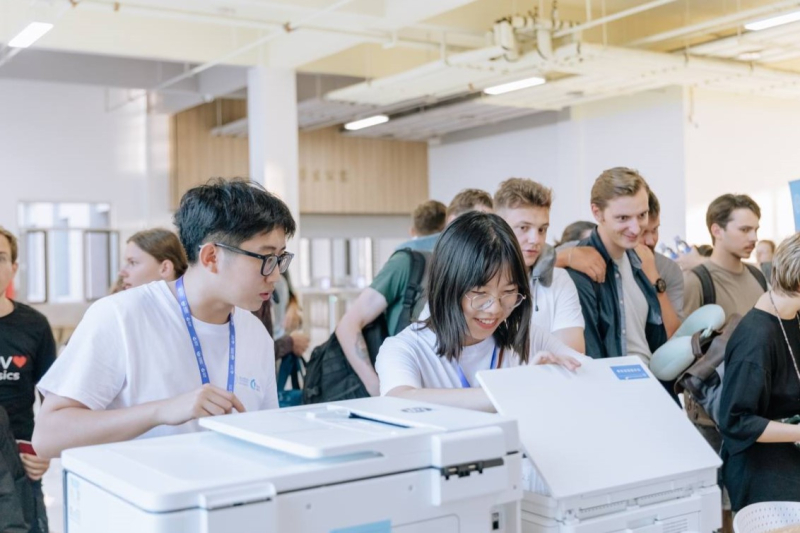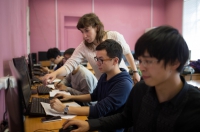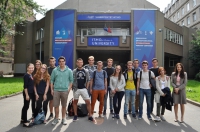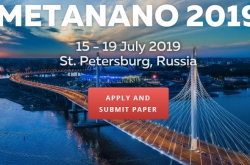The METANANO Summer School has been held annually by ITMO’s School of Physics and Engineering since 2016. The event is meant to provide researchers, students, and industry representatives with a platform for discussions on the latest advances in nanophotonics and new materials. While the school is usually held in St. Petersburg, this year it took place in Qingdao, China. This city, widely considered to be among the main economic hubs of the country, was featured in Nature Index 2022 as one of the top 70 science cities in the world. Qingdao is home to multiple campuses of leading Chinese universities and academic institutions, such as Shandong University of Technology, Ocean University of China, and Qingdao University of Science and Technology.
This year, the school program featured lectures, a poster session, a cultural program, as well as sports activities. Most of the talks focused on modern nanophotonics, metamaterials, and metasurfaces. Reports were delivered by 18 lecturers from Singapore, China, Australia, Denmark, and leading Russian research institutions. Among the school’s lecturers were: Prof. Yuri Kivshar, Australian National University; Prof. Lei Zhou, Fudan University; Prof. Haizheng Zhong, Beijing Institute of Technology; Prof. Sang Il Seok, Ulsan National Institute of Science and Technology, and others. The poster session featured reports by 62 young scientists.
“I was mostly interested in posters because there were many of them by students from ITMO. I was curious to see what the younger generation is doing right now in our field,” shared Prof. Yuri Kivshar from Australian National University. “METANANO is not a traditional school, it’s more of a mixture between a school and a workshop. And I think that in the future we should work harder to increase the number of local, Chinese, participants. There are many groups working in the field in China and attracting students from there will be very beneficial both for Qingdao and ITMO.”
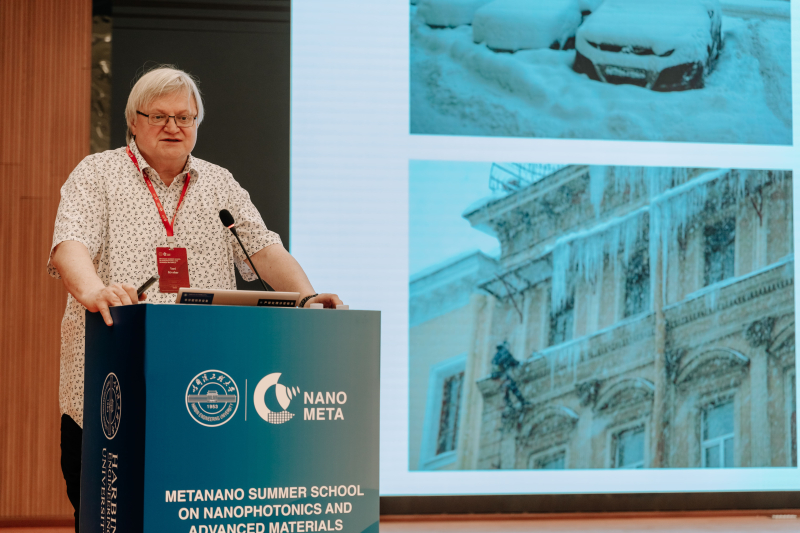
Yuri Kivshar. Photo courtesy of the organizers
According to Sergey Makarov, a member of the school’s program committee and a chief researcher at ITMO’s Faculty of Physics, the school fostered new research connections between participants from different countries, who were able to establish concrete plans for collaboration.
“The main result of this year’s school is the expanded geography of our international research collaborations – for the majority of participants, this was their first visit to Qingdao. At the school, our participants agreed to arrange reciprocal visits of students and researchers between universities in Russia, China, South Korea, Israel, and Australia. Thanks to the school, students in China learned about ITMO, and many of them have already applied for internships and academic exchange programs at the university. Representatives of ITMO, on the other hand, had the chance to explore Harbin Engineering University’s new campus in Qingdao. I am certain they’ll be able to use this experience in their future collaborations,” said Sergey Makarov.
What did the participants themselves think of the school? Here’s what they had to say:
Prof. Changzhi Li, Zhejiang University, China:
Right now, I am the head of a research team working in the area of organic semiconductors. We are mainly focusing on organic and perovskite solar cells that will transform light into electricity thanks to their special design.
In my talk, I presented a new type of translucent semiconductor material. We make organic semiconductor materials that can absorb a portion of near-infrared photon light and let the other part of the spectrum pass through. This means that in the near future, we will be able to produce entire windows that are see-through and can produce electricity.
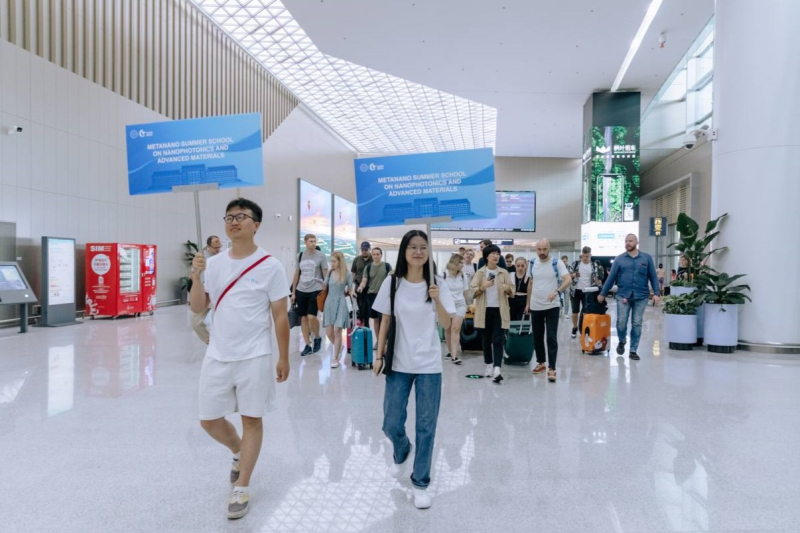
Participants of the METANANO Summer School in China. Photo courtesy of the organizers
Xuchen Wang, postdoctoral researcher, Karlsruhe Institute of Technology, Germany:
My field of research is electromagnetic metasurfaces and metamaterials. My talk was about the time variable in metasurfaces (the way their properties change in time).
In general, this school is the most wonderful one that I have been to over the past eight years. I have done research in Finland and Germany, I have attended many events in Europe, but this one is just the best! I think METANANO is a great opportunity to meet a lot of esteemed people from different fields and collaborate with them.
Elena Ushakova, ITMO University:
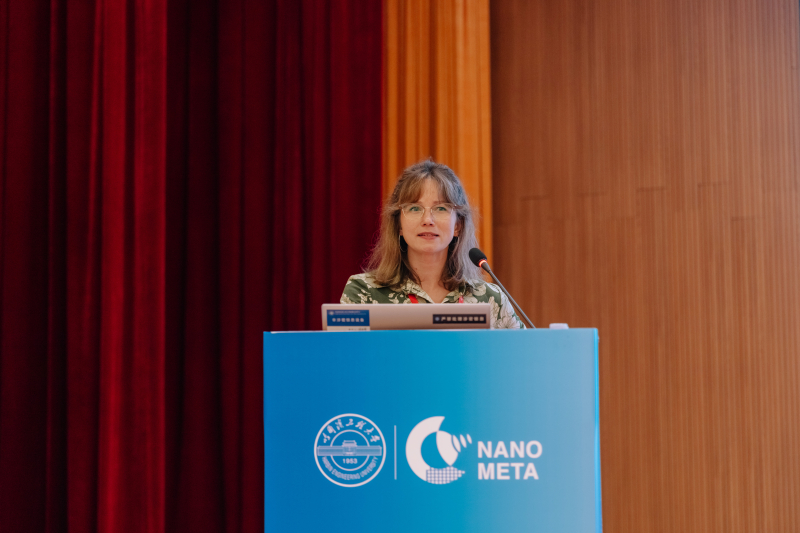
Elena Ushakova. Photo courtesy of the organizers
My team focuses on research in nanomaterials and colloidal nanoparticles in particles: carbon dots, semiconductor quantum dots, and composite nanoparticles – and their applications.
METANANO is not entirely in my field, but I saw this school as a great opportunity for interdisciplinary collaboration. It’s interesting to find new spots for interconnection and new research areas.
My advice to the future participants would be to stay open to new knowledge and people, be inspired, and have fun. I think science is fun, so if you are curious about what you do, then you will succeed.
Andrey Bogdanov, ITMO:
This is the eighth international METANANO summer school, but the first to be held abroad. It's a new experience for us, so we're glad to see it all went well. The venue in Qingdao that we've been provided by Harbin Engineering University is an excellent location for such events. We're already planning to return to Qingdao next spring with a school in modern acoustics and acoustic metamaterials.
This article features contributions by Maria Popova, an engineer at ITMO’s Faculty of Physics.
